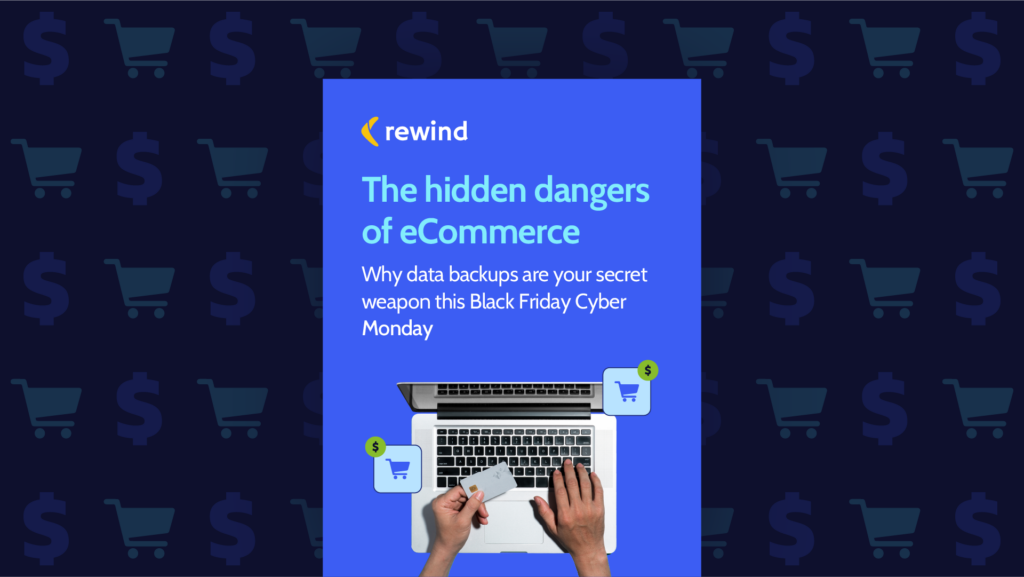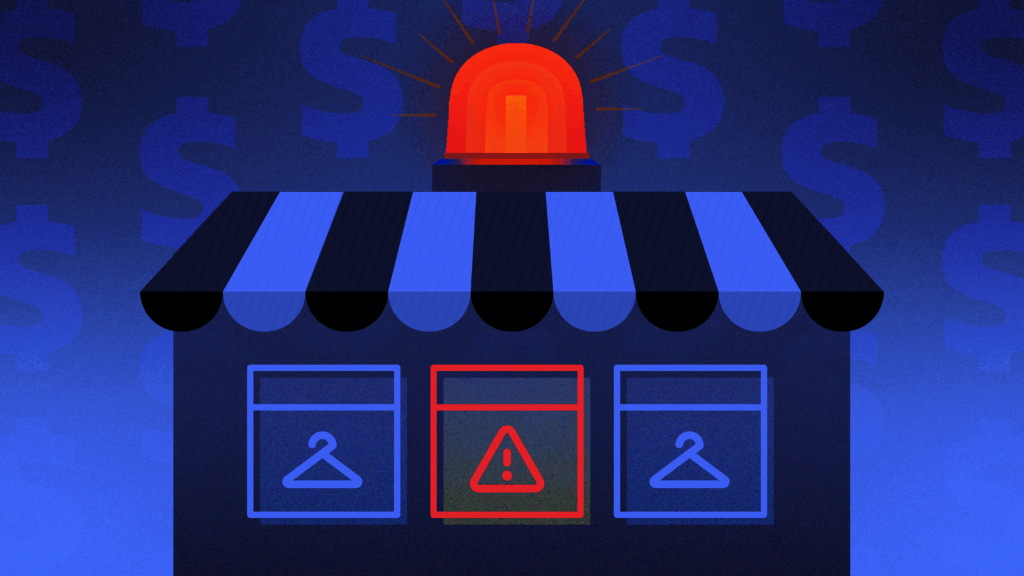FFWD
- Shoppers in 2025 will be more strategic and value-driven, researching in advance and seeking transparent pricing over impulse discounts.
- AI shapes both customer experience and operations, while omnichannel integration is critical to meeting shopper expectations.
- Merchants must protect margins with strategic discounting and safeguard their stores with reliable backups to avoid costly data loss.
Black Friday/Cyber Monday (BFCM) is the biggest weekend in ecommerce, but the way shoppers approach it is shifting. Last year, Shopify merchants processed $11.5B in BFCM sales, and 2025 is shaping up to be just as competitive. Getting prepared for BFCM is key, and that includes backing up your store data to avoid costly downtime.
We sat down with Bige Yilmaz, Digital Marketing Director, Australia at Overdose Digital, to talk about what merchants can expect this year, from value-driven shoppers to the growing role of AI, and how to avoid common pitfalls. Her insights cut through the noise and highlight what really matters for ecommerce brands preparing to cash in (and protect their hard-won gains) this BFCM.
How do you think BFCM 2025 will compare with previous years?
- Lingering economic caution: Despite some predictions of interest rate cuts throughout 2025, the cumulative impact of past rate hikes and persistent inflation will mean that many households are still feeling the pinch. Consumers are likely to be more deliberate with their spending, prioritizing essential items and seeking genuine value rather than impulse buys.
- Pre-planning & comparison shopping: We’ll see an even greater emphasis on pre-planning and comparison shopping. Shoppers will be doing their research well in advance, leveraging price comparison websites and apps, and potentially waiting for BFCM to make significant purchases they’ve been deferring. Retailers who offer transparent pricing and clearly communicate the value of their deals will stand out.
What trends are you seeing/do you foresee in ecommerce?
- Enhanced customer experience: AI will play a more significant role in personalising shopping experiences, from tailored product recommendations and dynamic pricing to improved customer service chatbots. Merchants who leverage AI to understand individual customer preferences will be better positioned to convert.
- Operational efficiencies: Beyond the customer-facing aspects, AI will also be critical for optimizing inventory management and supply chain logistics, ensuring retailers can meet demand during this intense period.
- Seamless integration is key: The lines between online and in-store shopping will continue to blur. Data from previous years already shows a significant trend towards omnichannel engagement during sales events, with a notable increase in shoppers planning to use both channels for BFCM. Merchants must provide a truly seamless experience, from online browsing and stock checking to in-store pickup options and easy returns. This is where tools like Shopify POS become indispensable, allowing merchants to unify their online and offline sales channels, manage inventory across all locations, and offer services like buy online, pick up in-store (BOPIS), which is crucial for a smooth customer journey during high-traffic sales periods.
What advice would you offer to an ecommerce merchant ahead of BFCM, especially considering the current economic climate?
- Focus on customer retention and loyalty beyond the first purchase: With heightened competition and value-conscious consumers, securing the initial BFCM sale is only half the battle. Retailers will need to focus heavily on post-purchase experiences, loyalty programs, and exceptional customer service to drive repeat business. Building strong brand affinity will be crucial for sustained success.
- Highlight “bang for buck”: Consumers are becoming more strategic and value-driven. Instead of just deep discounts, articulate the value proposition of your products. Is it durability, quality, longevity, eco-friendliness, or a problem-solving solution?
- Make data-driven decisions: Utilise your customer data to segment audiences and personalise offers. Tailor recommendations based on past purchases, browsing behaviour, and demographics.
What are the top pitfalls merchants need to avoid this BFCM season?
In a competitive and value-conscious market, there’s an immense temptation to offer the deepest discounts possible to attract shoppers. However, blindly slashing prices without a clear understanding of your true costs (including acquisition, fulfillment, and potential returns) can quickly erode already thin margins. The “Black Friday creep” also means this discounting period extends, potentially impacting profitability for a longer duration. Merchants might over-emphasize top-line revenue without adequate focus on the bottom line.
With inflation and rising operational costs (shipping, wages, etc.), your actual cost to serve a customer has likely increased. A seemingly good discount percentage might translate into a loss once all factors are considered. Consumers are looking for value, which isn’t always synonymous with the lowest price. They’re more discerning and will appreciate transparency.
What you can do now:
- Understand your true cost per product sold, factoring in all associated expenses.
- Focus discounts on specific products that drive traffic, move excess inventory, or complement higher-margin items.
- Instead of just offering a percentage off, consider lowering free shipping thresholds, adding gifts-with-purchase, offering bundles that offer perceived value, or exclusive access/early bird deals for loyalty members.
- Use analytics to track the profitability of your BFCM sales in real-time, not just total revenue.
Why is it important for ecommerce merchants to back up their store data?
An ecommerce store’s data is its lifeblood. Without a robust backup strategy and leveraging tools designed for this purpose like Rewind, merchants are operating without a safety net, exposing themselves to significant financial, reputational, and operational risks. It’s not a question of if data loss will occur, but when, and having backups ensures you can recover quickly and effectively.
Every minute your online store is down or experiencing critical errors means lost sales. For events like BFCM, this can be catastrophic. A reliable backup, facilitated by services like Rewind, allows for rapid restoration, getting you back online and selling much faster than if you had to rebuild from scratch.
Beyond sales, your store data is critical for managing inventory, fulfilling orders, communicating with customers, and tracking finances. Data loss can bring all these operations to a standstill, creating a chaotic and unproductive environment.
Customers expect a seamless shopping experience. If your site is constantly down, buggy, or if their order history disappears, it erodes trust and can lead to customer churn. Backups are an insurance policy for your brand’s reliability.
Stress-test your website well in advance. Invest in scalable hosting or a platform like Shopify that can handle immense traffic spikes. Don’t let a “good problem” (too many visitors) become a catastrophic one.
Bige Yilmaz
Any BFCM “cautionary tales” you can share?
An Australian fashion boutique, riding a wave of social media hype, decided to go big with their first BFCM sale. They had a single, incredibly desirable dress that went viral on TikTok. On Black Friday morning, they dropped the huge discount. Within minutes of the sale going live, their website (on a basic shared hosting plan) buckled. Shoppers reported slow loading, error messages, and even complete site outages. By the time their developer managed to get things somewhat stable hours later, the initial surge of excited customers had moved on.
Hype is great, but infrastructure must match. This merchant not only lost potentially record-breaking sales but also severely damaged customer goodwill. The initial excitement turned into widespread frustration and negative comments across social media. Many potential new customers never returned.
My advice? Stress-test your website well in advance. Invest in scalable hosting or a platform like Shopify that can handle immense traffic spikes. Don’t let a “good problem” (too many visitors) become a catastrophic one.
What’s your BFCM backup plan?
BFCM isn’t just about the biggest discounts; it’s about preparation, strategy, and resilience. Merchants who understand their margins, focus on retention, and deliver a seamless experience will be best positioned to win this season. But even the strongest strategy can be undone by a single data loss incident.
That’s why having a backup plan matters. With Rewind’s automated backups and fast recovery for Shopify, you can safeguard your store, protect your customer experience, and sell with confidence, no matter what BFCM throws your way.
Start your free trial or book a demo to get protected before the biggest shopping weekend of the year.

 Rewind">
Rewind">


